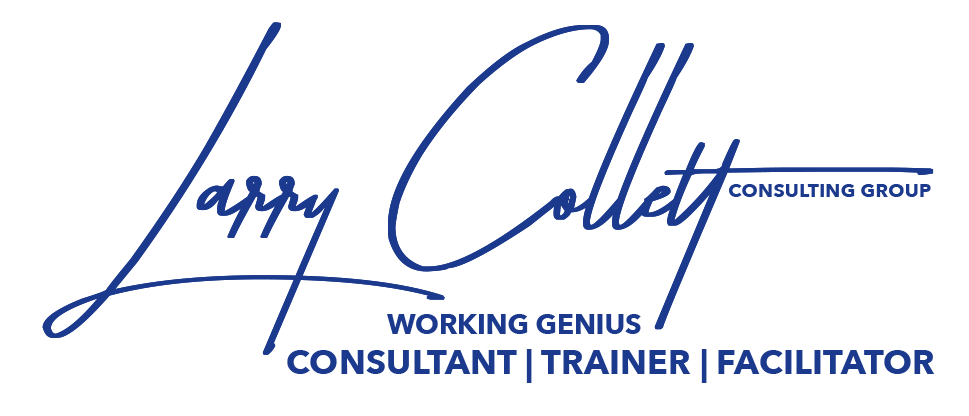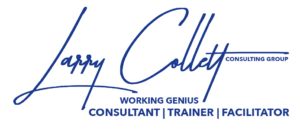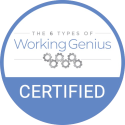Understanding the Working Genius Model
Introduction to the Working Genius Model
The Working Genius Model is a framework developed to help individuals and teams identify their areas of strength and weakness when it comes to work-related tasks. By understanding the six types of working genius, team members can leverage their strengths and support each other in areas where they may struggle.
Identifying Your Working Genius
To make the most of the Working Genius Model, it’s essential to identify which of the six types of working genius resonates most with you. The six types include Wonder, Invention, Discernment, Galvanization, Enablement, and Tenacity. By recognizing your primary and secondary working geniuses, you can align your tasks and responsibilities to better suit your strengths.
Applying the Working Genius Model in Teams
In a team setting, understanding the working geniuses of each team member can lead to more effective collaboration and task allocation. By recognizing the unique contributions that each team member brings based on their working genius types, teams can optimize their workflow and achieve better results. Encouraging open communication about working geniuses can foster a more inclusive and supportive team environment.
Discovering Your Team’s Dominant Gifts
Identifying Individual Strengths
When it comes to discovering your team’s dominant gifts, start by identifying the individual strengths of each team member. Take the time to observe and engage with each person to understand what they excel at and what brings them joy in their work. This process can involve one-on-one conversations, performance evaluations, or even personality assessments to gain deeper insights.
Encouraging Self-Reflection
Encourage team members to engage in self-reflection to identify their own dominant gifts. This can be done through journaling exercises, self-assessment tools, or guided reflection sessions. By empowering individuals to recognize their strengths and unique abilities, they become more aware of how they can contribute to the team’s success.
Fostering Collaboration and Feedback
Creating a culture of collaboration and feedback is essential in uncovering the dominant gifts within your team. Encourage open communication and regular feedback sessions where team members can share insights on each other’s strengths and areas for growth. By fostering a supportive environment, individuals are more likely to feel comfortable showcasing their dominant gifts and working together to leverage them effectively.
Recognizing and Developing the 6 Types of Working Genius
Understanding the 6 Types of Working Genius
Each member of your team possesses a unique combination of the six types of working genius. These geniuses include Wonder, Discipline, Tenacity, Imagination, Mercy, and Obsession.
Identifying and Nurturing Individual Geniuses
Recognizing and acknowledging the specific working genius that each team member brings to the table is crucial for maximizing productivity and job satisfaction. By understanding these geniuses, you can better assign tasks, foster collaboration, and create a more harmonious work environment.
Cultivating a Balanced Team
Building a team with a diverse representation of the six types of working genius can lead to a more well-rounded and successful group dynamic. Encouraging team members to develop their less dominant geniuses can also help them grow both personally and professionally.
Leveraging Individual Strengths for Team Success
Recognizing Unique Contributions
In any team setting, it’s crucial to recognize and appreciate the individual strengths that each team member brings to the table. By acknowledging and leveraging these unique contributions, teams can harness the power of diversity and create a well-rounded approach to problem-solving and decision-making.
Encouraging Open Communication
Open communication is key to unlocking the full potential of a team. By encouraging team members to share their strengths, ideas, and perspectives openly, leaders can foster a collaborative environment where everyone feels valued and heard. This open dialogue can lead to innovative solutions and a more cohesive team dynamic.
Fostering a Culture of Empowerment
Empowering team members to utilize their strengths not only boosts individual confidence but also enhances overall team performance. When team members feel empowered to leverage their unique abilities, they are more likely to take ownership of their work and contribute meaningfully to the team’s success. Leaders play a crucial role in fostering a culture of empowerment by providing opportunities for growth and development based on individual strengths.
Implementing Strategies for Growth and Collaboration
Developing Team Growth Strategies
When it comes to enhancing growth within a team, it’s crucial to first identify the specific areas for improvement. This could involve conducting assessments, seeking feedback from team members, or analyzing past performance data. Once these growth areas are identified, the team can then develop actionable strategies to address them. These strategies should be focused, measurable, and aligned with the overall goals of the team.
Fostering Collaborative Relationships
Collaboration is key to the success of any team. To foster collaborative relationships within the team, it’s important to create a culture of open communication, trust, and respect. Team members should feel comfortable sharing their ideas and opinions, knowing that they will be heard and valued. Additionally, establishing clear communication channels and promoting teamwork can help enhance collaboration and drive better results.
Encouraging Innovation and Creativity
Innovation and creativity are essential for driving growth and staying ahead of the competition. Encouraging team members to think outside the box, experiment with new ideas, and take calculated risks can lead to breakthrough innovations. Providing opportunities for professional development, brainstorming sessions, and creative projects can help nurture a culture of innovation within the team.


